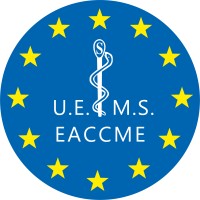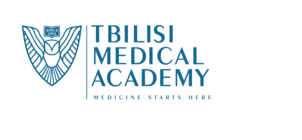VOSCE


From July 22nd to July 25th Petre Shotadze Tbilisi Medical Academy will held 4-day training course “VOSCE (Virtual OSCE) - a digitalized tool for Objective Structured Examination of Clinical Reasoning Skills of Medical Students”
“The VOSCE - digitalized tool for Objective Structured Examination of Clinical Reasoning Skills of Medical Students, Tbilisi, Georgia 22/07/2024 - 25/07/2024, - has been accredited by the European Accreditation Council for Continuing Medical Education (EACCME®) with 17.0 European CME credits (ECMEC®s).
Who it’s for:
All medical specialists enrolled in undergraduate Medical Education (aimed at those new to medical education, valuable for experienced educators who would like to deepen their understanding of OSCE and VOSCE educational principles)
The Aim :
Introduction of objective structured digitalized tool for assessing clinical reasoning skills of medical students.
Expected Educational Outcomes of the training course:
Learner/trainer:
- Describes the concept of the OSCE (Objective Structured Clinical Exam) as a tool for performance-based assessment in simulated environments;
- Constructs the OSCE/VOSCE blueprint and map for Competency Based Medical Education based curriculum;
- Elaborates cases for OSCE and VOSCE stations;
- Defines the role of standardized patients in OSCE;
- Creates special scenario for Standardized Patient for OSCE station
- Lists the necessary inventory for the station and supporting documents for OSCE;
- Constructs evaluation sheets with grades;
- Interprets the meaning of linked stations of OSCE;
- Describes the steps of training for examiners;
- Transforms the information from Clinical Case into the OSCE station task;
- Interprets benefits and drawbacks of VOSCE;
- Prepares tasks and questions for VOSCE station;
- Identifies the role of task grading of digitalized scenarios in the Moodle system;
- Observes, discusses and analyzes the OSCE and VOSCE results
Indirect Expected Educational Outcomes:
- Learner introduces and implements digitalized tool for assessment of Clinical reasoning skills in his/her institution;
- Learner improves competency assessment tool in his/her institution
Methods to promote adult active learning
- Q/A – after each training session for clarification of provided information;
- Group work – learners collaborate on assignments to apply knowledge in problem-solving;
- Observation of Exam Process;
- Discussion time- to discuss some issues with colleagues;
- Pre test and Post test – quizzes to demonstrate learning:
Training course was prepared by professors (Specialists in Medical Education) of Petre Shotadze Tbilisi Medical Academy (TMA) based on experience gained during the SAFEMED +project – Simulation in Undergraduate Medical Education for improvement of Safety and Quality of Patient Care. This project was funded by the European Union and the Erasmus+ program in 2020, aiming to improve medical education quality and modernize curriculum implementation of clinical skills..
TMA coordinated the project with partners including Tbilisi State Medical University(Georgia), University of Santiago de Compostela (Spain), Vilnius University (Lituania), University of Catania (Italy), Yerevan State Medical University (Armenia), Haibusak University (Armenia). Hobachevsky Ternopil State Medical University (Ukraine), Bukovin State Medical University (Ukraine).
Language of instruction
English
Format of training
Hybrid
Link for RegistrationPlease refer to the detailed programme in the attached file
